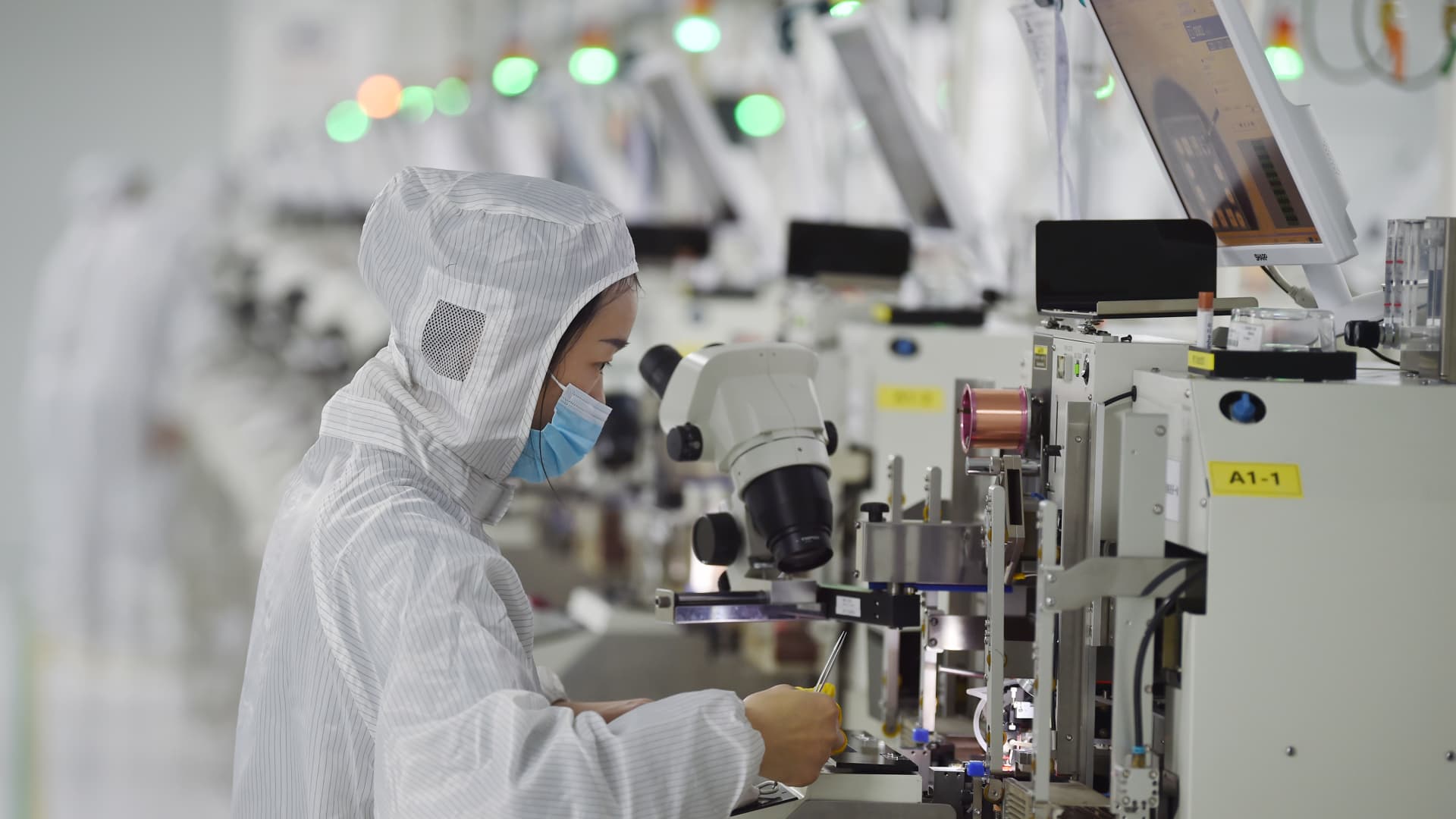China slaps export curbs on chipmaking metals in tech war with the U.S, Europe

China is restricting the exports of gallium and germanium, two metals key to the manufacturing of semiconductors, its commerce ministry said in a statement late on July 3, escalating a technological trade war over access to microchips with Europe and the United States.
Nurphoto | Nurphoto | Getty Images
China is restricting the exports of two metals key to the manufacturing of semiconductors, its commerce ministry said late Monday, escalating a technological trade war with Europe and the United States over access to microchips.
These new regulations — imposed on grounds of national security — will require exporters to seek a license to ship some gallium and germanium compounds starting Aug. 1, China’s commerce ministry said. Applications for these export licenses must identify importers and end users and stipulate how these metals will be used.
This move is part of an intensifying global battle for technological supremacy — with China as the world’s largest source of both metals, according to a European Union study on critical raw materials this year.
Shares of Chinese germanium producers soared on Tuesday. At the midday trading break, Yunnan Lincang Xinyuan Germanium Industrial surged by the 10% limit in Shenzhen, while Yunnan Chihong Zinc & Germanium pared earlier gains but was still 7.5% higher. Both are outperforming the 0.1% gain for the CSI 300 index of China’s largest A-share listings.
In October, the U.S. launched sweeping rules aimed at cutting off exports of key chips and semiconductor tools to China. The measures are believed to have the potential to cripple China’s ambitions to boost its domestic technology industries. The U.S. has also lobbied key chipmaking nations and allies, like the Netherlands and Japan, to introduce export restrictions of their own.
The Netherlands responded Friday with new export restrictions on advanced semiconductor equipment. This will effectively bar ASML from exporting to China. But these latest Dutch curbs do not specifically target ASML, one of the most important semiconductor companies in the world.
Some countries are also trying to secure their own supply chains and build up their domestic chip industries, focusing on areas where they are traditionally strong. Last week, a fund backed by the Japanese government proposed a 903.9 billion yen ($6.3 billion) acquisition of semiconductor materials giant JSR.
Semiconductors are some of the most important technology products. They go into everything from smartphones to cars and refrigerators, and are also seen as key to military applications and advancing artificial intelligence.









